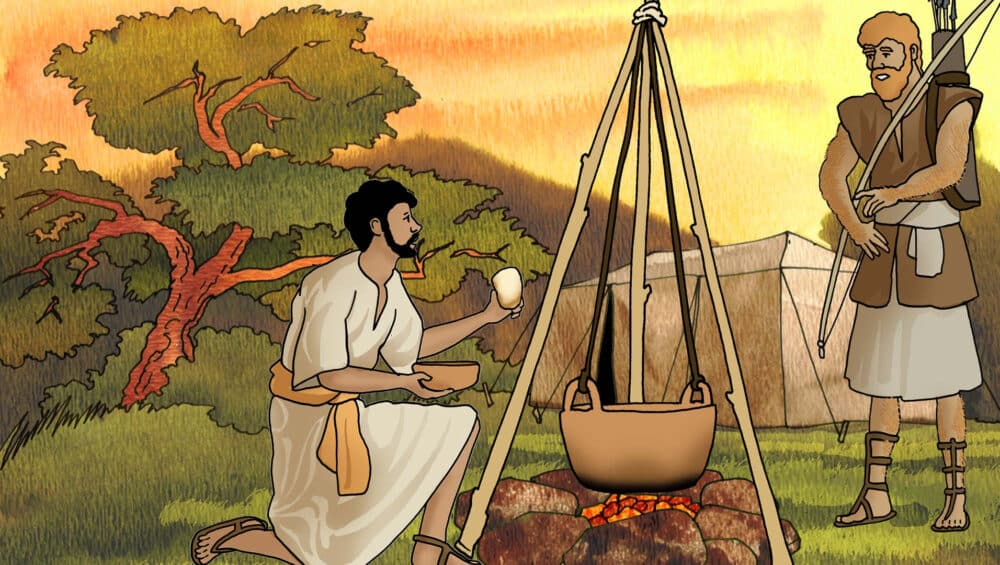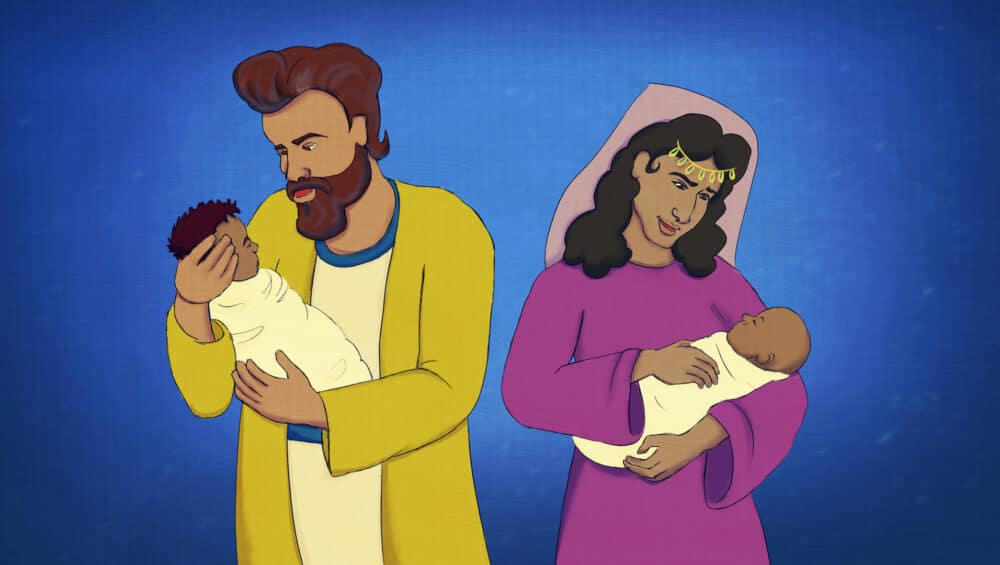Welcome to Livin’ Light’s Bible-In-A-Year challenge of discovering God’s love for us and His purpose for our lives. Here is the format for this great adventure: The daily reading assignment is posted at 5 a.m. After each day’s reading, Leigh An Coplin, the blog host, shares observations and poses questions about difficult passages to Rob Fields, who studied Christian Education at Asbury Seminary and currently teaches Biology in the Orlando area. To start from the beginning, click on 365 Bible Readings and scroll down to Day 1. The reading schedule is taken from The One Year Chronological Bible NLT.
Today’s Reading
— Genesis 25:27-28:5
(2006-1928 BC) Click here for a timeline of the whole Bible.
Questions & Observations
Q. (26:7): Is there any significance of Isaac going through the same scenario as his father, saying that his wife was his sister for fear of being killed to get her? Abraham and Isaac both seemed to not realize that the rulers they were scared of actually feared them because the rulers knew the Lord was with Abraham and Isaac. Also, this seems to be setting up, “Thou shall not commit adultery?”
A. Outside the very likely scenario that Abraham TAUGHT Isaac this method of survival in a hostile environment, I am not aware of particular significance to it. It is interesting to me that the rulers who are deceived by this ploy (twice with Abraham, once with Isaac) have a great deal of respect for married life, and clearly take great pains to avoid committing adultery. They don’t seem to need a command not to, though it would appear “thou shall not bear false witness” should be in order for Abraham and Isaac. Anyway, once again, for some reason, God rewards the behavior by having the king grant Isaac protection for himself and Rebekah.
Q. (26:18): To name a well, they must have been important. It sounds like they are geographical markers, like a town. Were they more than a hole in the ground?
A. Since much of the story to this point takes place in a desert, you can be that water locations and rights (note the number of disputes over water in just today’s text alone!) were absolutely crucial. Wells and other watering holes would have been community-gathering points as well, so it is unsurprising that they would be given ceremonial “nicknames” to commemorate a major event that happened there.
O. (27:4): Eating seems to be a ceremonial occasion in the Bible thus far. When the Lord appeared to Abraham, he prepared a feast of his best animals and harvest. Here, Isaac asks Esau to prepare a meal before giving him his birthright blessing. Today, we still practice feasts for important occasions and every day life. I see it as a literal taking in and sharing God’s blessings, enjoying them and praising Him for them.
Q. (27:5-35): Why is such deception allowed in the story of Jacob tricking Isaac in giving him his blessing instead of Jacob? It doesn’t sound like something God would approve. Was this planned by God, or He just knew what would happen? It’s hard to understand free will when God knows everything that will happen to us. He creates us and says that He knew us before we were formed. So, did He create us to succeed or fail according to His plans? I feel like I may get struck down for asking this question, but I’m sure the answer is in the Bible.
A. It is important to note that not everything the Bible reports is something the Bible approves of. Jacob will pay a price for his deception of his brother and father: he will be forced into exile, though God will bring blessing to Jacob in spite of Jacob’s actions. As I mentioned yesterday, God certainly knew in advance what Jacob would do, but ultimately, this is the line that God has chosen (for better or worse, see it sounds like a marriage already!) to redeem the entire world. I tend to fall into the free will camp myself, with the understanding that just because God knows what I am going to do does not make me less responsible for it. And God is capable of working with us in the midst of those good and bad decisions to carry out His purposes. And the real payoff in this story for the “good things coming out of really, really bad decisions” is still coming out of the story of Jacob’s 12 sons: the story of Joseph being sold into slavery by his jealous brothers. So, honestly, at this point, let’s let the story unfold and we can see the way that God will use Jacob’s deception to bring about the redemption that He desires.
For more insight: A scholarly discussion on Isaac’s blessing: https://rts.edu/resources/the-blessing-of-esau/
Shop: Don’t be a fish out of water, follow the teacher! https://livinlight.org/product/teacher-t-shirt/
Tomorrow’s reading: Genesis 28:6-30:24







